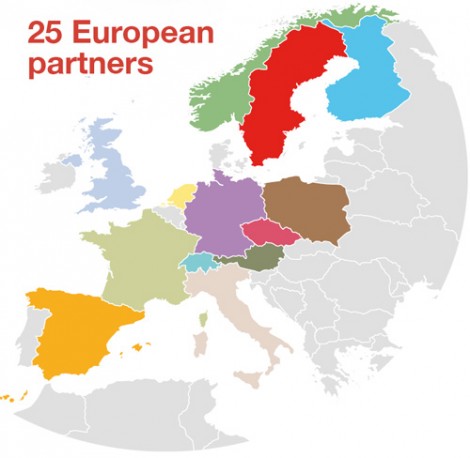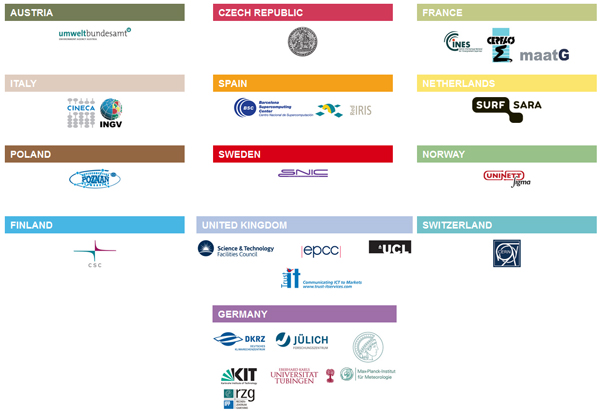Aiming to contribute to the production of a Collaborative Data Infrastructure driven by researchers’ needs, EUDAT project is coordinated by CSC – IT Center for Science, Finland, and co-funded by the European Commission’s Framework Programme 7.

The EUDAT consortium includes representatives from each stage of the process that delivers scientific knowledge to researchers, citizens, industry and also to society as a whole.
The consortium comprises 26 European partners, including data centers and technology providers, along with research communities and funding agencies from 13 countries, who are working together to deliver a Collaborative Data Infrastructure that can sustainably meet researchers’ needs.
The EUDAT vision is in fact to support a Collaborative Data Infrastructure which will allow researchers to share data within and between communities and enable them to carry out their research effectively.
The mission is:
- Help fulfill the vision of a European Data e-infrastructure by providing a sustainable platform of technologies, tools and services driven by user needs.
- Engage users (including individual researchers along with representatives from universities, research labs, and libraries) in defining and shaping a platform for shared services that makes it possible for data-intensive research to span all the scientific disciplines.
- Produce the common low-level services that are required to provide the level of interoperation and trust of data that is necessary to support both widespread access to data, and the long-term preservation of data for use and re-use.
- Ensure that the data infrastructure is sufficiently robust to keep pace with the expected acceleration of the scale and complexity of scientific data being generated within the ERA and beyond.
“EUDAT fills an important gap in the current European e-Infrastructure landscape,” said Dr. Kimmo Koski, CSC Managing Director and EUDAT Project Coordinator. “We are developing a generic infrastructure for scientific data management that can used by a diversity of research communities and existing infrastructures.”
 The EUDAT consortium provides multidisciplinary collaboration, being represented in it different areas of research: linguistics, earth sciences, climate sciences, environmental sciences, and biological and medical sciences. Other communities have joined EUDAT as associate members, representing 15 research disciplines across all major fields of science.
The EUDAT consortium provides multidisciplinary collaboration, being represented in it different areas of research: linguistics, earth sciences, climate sciences, environmental sciences, and biological and medical sciences. Other communities have joined EUDAT as associate members, representing 15 research disciplines across all major fields of science.
EUDAT Scientific Coordinator Peter Wittenburg, from the Max Planck Institute for Psycholinguistics at Nijmegen, the Netherlands, said EUDAT opens considerable new opportunities for research communities. “Beyond offering common services such as data hosting and preservation, EUDAT is paving the way towards integrated and interoperable access to data and, in doing so, facilitates new science and allows efficient knowledge creation,” said Wittenburg. “It is this double opportunity that makes the EUDAT initiative so interesting for research communities and infrastructures.”



 If you have interesting news and events to point out in the field of digital cultural heritage, we are waiting for your contribution.
If you have interesting news and events to point out in the field of digital cultural heritage, we are waiting for your contribution.
























